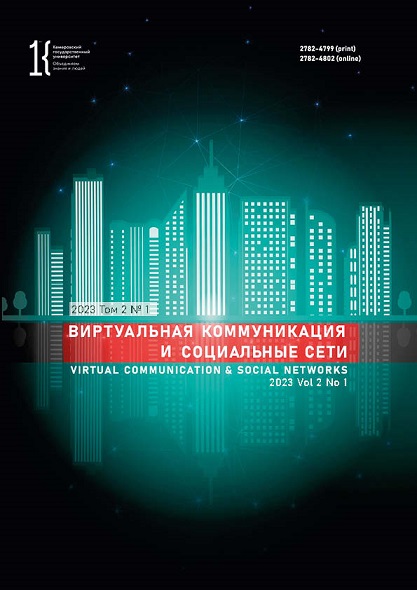Kemerovo, Russian Federation
Kemerovo, Russian Federation
More and more English loan words appear on German internet sites with each year, following the mass media globalization trend. This article describes English loan words and phrases in the German-speaking online advertising of German cosmetics brands. The authors examined how English borrowings function in the virtual advertising and defined their place in the text structure. The research included such methods as dictionary definition, linguistic, contextual, and structural analyses. The continuous sampling revealed the following contexts: product names, slogans, and product descriptions. Advertisers referred to English borrowings to make the advertizing international, to use them as stylistic devices, or to designate new concepts. The borrowings differed in structure as individual lexemes or phrases, both English and German, sometimes with no grammatical agreement between the adjective and the noun. English phrases occurred more often than separate words.
virtual advertising communication, German, borrowing, English loan words, promotion texts
1. Zasedateleva M. G., Bolshakova E. S. American borrowings in the modern German language. Eurasian Humanitarian Journal, 2018, (1): 28-31. (In Russ.) https://elibrary.ru/yvotrx
2. Kozlovskiy V. I. Advertising communication as a socio-cultural form: the work of the mind and spirit. The Bulletin of Moscow State University of Culture and Arts (Vestnik MGUKI), 2012, (2): 202-207. (In Russ.) https://elibrary.ru/oycgyt
3. Livshits T. N. Specificity of advertising in pragmatic and linguistic aspects. Cand. Philol. Sci. Diss. Taganrog, 1999, 354. (In Russ.) https://elibrary.ru/nlnkah
4. Lyapun S. V., Khabekirova Z. S. Virtual communication integrated paradigm. Scientific and methodological support of teaching foreign languages at non-linguistic faculties in the light of the theory and practice of intercultural communication: XIX All-Russian electronic remote Conf. "Relevant issues of learning foreign languages in the formation of professional competence of students of non-linguistic faculties: intercultural communication", Maykop, 16-17 May 2016. Maykop: Elektronnye izdatelskie tekhnologii, 2016, vol. 12, 77-80. (In Russ.) https://elibrary.ru/vzfrfv
5. Prokhorova S. N. Advertising communication as a variable model of mass communication. Vestnik YarGU. Seriya Gumanitarnye nauki, 2013, (3): 118-121. (In Russ.) https://elibrary.ru/rcypnx
6. Smirnova A. G. To the question of research of English borrowings assimilations in German advertising discourse. World of linguistics and communication: electronic scientific journal, 2016, (45): 6-11. (In Russ.) https://elibrary.ru/wzyywh
7. Chechetka V. I., Pilevtseva A. V. Influence of anglicisms on the German language (on the example of the language of advertising). The role of psychological and pedagogical research in the innovative development of society: Proc. Intern. Sci.-Prac. Conf., Taganrog, 15 Apr 2022. Ufa: Aeterna, 2022, 127-130. (In Russ.) https://elibrary.ru/htspxc
8. Scherbakova P. S., Smirnova A. G. Some aspects of grammatical and semantic assimilation of English-language borrowings in German media texts. The Journal of Philological Studies, 2021, 6(1): 16-22. (In Russ.) https://elibrary.ru/xtnspy
9. Shcherbinina N. S. Anglicisms and Americanisms in modern Russian: a threat or a conditioned tendency. Scholars notes, ed. Vitsyuk L. A. Moscow-Belorechensk: HELRI, 2014, iss. 2, 135-139. (In Russ.) https://elibrary.ru/swptol















